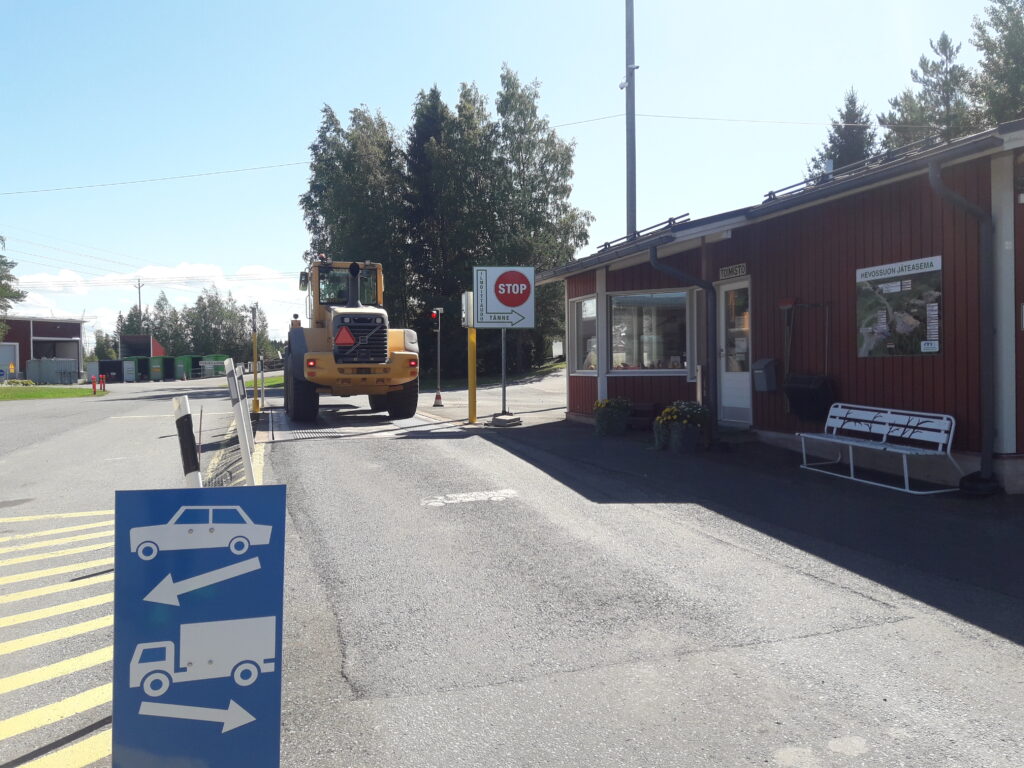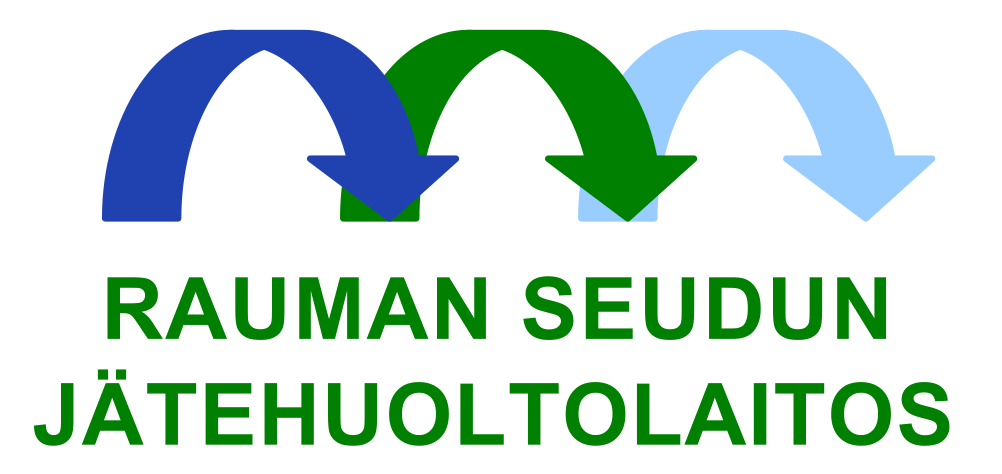Operation

Rauman seudun jätehuoltolaitos (Rauma Waste Management)
Rauma seudun jätehuoltolaitos (Rauma Waste Management) is a municipal establishment belonging to the City of Rauma. Our main task is to organise waste management in the Rauma area (mixed, biowaste and packaging waste collection), to organise waste management in the Eurajoki area (packaging waste collection and biowaste collection from 1 July 2024) and to maintain our own recycling points and the Hevossuo Waste Treatment Centre.
On 1 January 2023, the organisation of waste management in the Eurajoki area, including Luvia, will be taken over by the Rauma Waste Management.
In the Eurajoki area, waste transport for mixed waste will continue to be organised by the property owner, i.e. the property owner will order the emptying of the waste containers from the waste transporter of their choice. Emptying of packaging waste, Eurajoki eco-fees and the emptying of the regional collection points in the Luvia coastal areas are managed by the Rauma Waste Management.
In accordance with the Waste Act, the transport of packaging waste (cardboard, metal, glass and plastic packaging) was put out to tender by the municipality from 1 July 2023 in the Rauma and Eurajoki areas.
In the Eurajoki area, the transport of biowaste will be put out to tender by the municipality on 1 July 2024.
Rauma’s waste management activities are governed by the Waste Management Act and the municipality’s waste management regulations. The regulations guide waste management according to the principle of sustainable development so that the amount of waste is reduced and as much of it as possible is recycled.
The sorting of recyclable wastes saves the environment and natural resources. Valuable raw materials can be recycled.
Waste management organized by the municipality in accordance with the Waste Act
The organization of waste management is a legal task of municipalities. Waste Act obliges waste holders to join municipal waste management. The appropriate waste management for leisure housing is also an obligation under the Waste Act.
The Waste Act (JL § 32) lists the sites where the organization of waste management of the generated waste is the responsibility of the municipality. Municipalities are therefore responsible for organizing waste management for, among other things, waste generated in housing and municipal waste generated in social and health services and educational activities and public administration and service activities. Residential waste is considered to be all residential waste, regardless of its type, quality and quantity. Sludge and septic tank wastes also belong to these wastes. According to § 35.3 of the Waste Act, the waste that falls under the municipality’s waste management responsibility must be delivered to the reception or processing place designated by the municipality. According to the rationale of the law, the purpose of the provision is to ensure the municipality’s right and opportunities to perform the waste management tasks assigned to it by law.
According to the Waste Act, all waste management costs must be covered by waste fees
(JL § 78), tax funds are not used to organize waste management. According to the Waste Act, the original producer of the waste or the current or previous owner is responsible for the costs of waste management (principle of causation). JL § 20.
The waste fee fully covers the costs of the establishment, use, decommissioning and aftercare (30 years) of the landfill referred to in § 21 of the Waste Act. Other costs of waste management include, for example, the reception and processing of hazardous waste, maintenance of recycling points, reception and processing of waste, waste advice, tendering for waste transport, invoicing of waste fees or other administrative work directly related to the organization of waste management and official activities of waste management, e.g. maintenance of the transport register.
Rauma has not used a basic fee, but all the costs of waste management have been included in the prices for emptying waste containers.
The municipal responsibility
32 §
The municipality’s obligation to organize waste management
According to section 32 of the Waste Act, the municipal waste disposal of non-hazardous waste is to be provided:
1. waste from habitual residence, leisure home, dormitory and other housing, including sludge and septic tank wastes;
2. municipal waste within the administrative and service activities of the state
3. municipal waste generated by commercial premises collected in together with the waste referred to in points 1 to 2
4. other municipal waste collected together with the waste referred to in points 1 to 3 in a regional pipe collection or with similar collection system.
In addition, the municipality must arrange for the reception and handling of hazardous waste forming from housing. The reception and handling of hazardous waste forming from agriculture and forestry is in the responsibility of the municipality, unless it is a question of an unreasonable amount of waste.
The municipal waste must be handed over to arranged municipal waste management. In the City of Rauma, waste management is organized by Rauman seudun jätehuoltolaitos (Rauma Waste Management).
